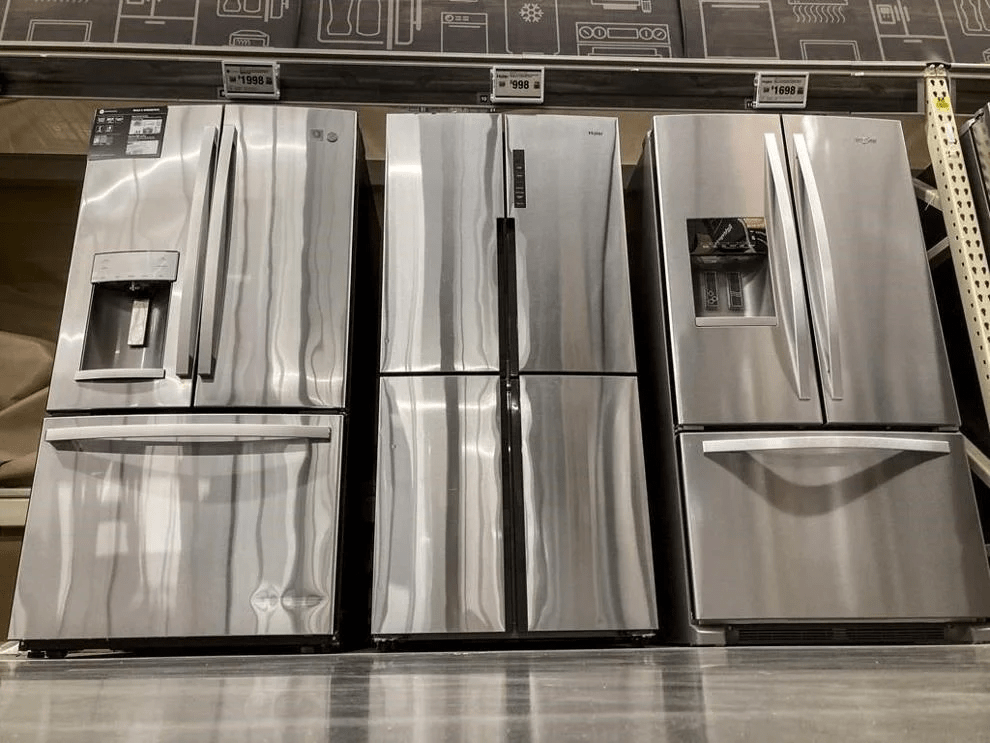
FILE - Refrigerators stand inside a retailer, Sept. 15, 2023, in Marietta, Ga. The Commerce Department releases U.S. retail sales data for January on Thursday, Feb. 15, 2024. (AP Photo/Mike Stewart)
In January, American consumers scaled back their spending more than anticipated, following the traditional surge during the holiday season.
According to the latest report from the Commerce Department released on Thursday, retail sales experienced a 0.8% decline in January compared to December, which saw a revised 0.4% increase. Excluding sales at auto dealerships and gas stations, sales dropped by 0.5%. This downturn exceeded economists' expectations of a 0.10% decrease and marked the lowest monthly figure since March of the previous year.
Economists suggest that while some of the decline can be attributed to inclement weather conditions, the broader slowdown indicates that consumers may be feeling the strain of higher interest rates and other financial challenges. This deceleration suggests a potential waning of the economic momentum seen at the end of 2023. Excluding sales of autos, gas, building materials, and restaurant meals, known as the control group of sales used to calculate economic growth, fell by 0.4% in January, contrary to economists' expectations of growth.
This retail sales report could signal positive news, suggesting that the Federal Reserve might consider cutting rates to provide relief to shoppers and businesses seeking lower borrowing costs.
Andrew Hunter, deputy chief U.S. economist at Capital Economics, stated in a report that real consumption seems to have declined in January. He suggested that Fed officials might soon address concerns about continued economic resilience reigniting inflation.
Despite higher borrowing costs and increased prices, household spending remains buoyed by a robust job market and rising wages.
In January, there was a surprising surge in hiring as employers added 353,000 jobs, indicating that the highest interest rates in two decades have yet to significantly impact the economy.
However, the slowdown in January was widespread, with consumers cutting spending in nine of 13 categories. Clothing and accessory stores experienced a 0.2% decrease in business, while health and personal care stores saw a 1.1% decline. Sales at building materials and garden suppliers fell by 4.1%, largely due to adverse weather conditions. General merchandise stores reported no change in business, while online sales dropped by 0.8%. Nevertheless, a robust increase in restaurant sales indicates continued strength in spending on services.
The retail sales report, however, provides only a partial view of consumer spending as it excludes many services like healthcare, travel, and hotel lodging.















